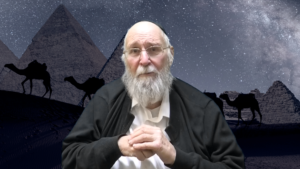I Am Learning the Laws – Parshat Mishpatim
You don’t have to be a lawyer to study mishpatim (the Torah’s laws). You don’t have to study mishpatim to be a lawyer. The Torah’s laws are primarily studied in order to learn to live like a Jew. Then (if you want…) you can also be a lawyer.
This week’s parsha is Mishpatim (Laws). This parsha is dedicated to learning the laws. You don’t have to be a lawyer to learn the laws. Parshat Mishpatim teaches us the rules of the Torah and its laws in many areas of life: the laws of guarding property, the laws of damages, loss, theft, robbery, and more, in all their possible variations. This is relevant to each and every one of us, as the Talmud writes on the verse in our parsha, “These are the laws that you shall place before them” (Exodus 21:1). “All the Torah’s laws apply equally to women and men” (Kidushin 31a).
In all other legal systems, the laws are the result of human logic. The existence of legal systems, to govern the world in general and each country in particular, is a necessity. The Torah’s laws, on the other hand, are not due to human logic but rather come from Divine decree, just like any of the Torah’s spiritual mitzvot, as Rabbi Nachman explains:
“One does not describe a Jew as being ‘erlich’ (an honest and upright person). For as we see, the nations of the world are also polite and have manners and common sense, as human integrity demands. This is called being ‘erlich.’ But Israel is a holy nation! Some of the Torah’s laws are in accordance with common sense and what seems right, but at other times, they do not make logical sense or even seem to be fair. All the laws are those which the King, the Creator, may his name be blessed, has decreed and commanded us to uphold.”
Rabbi Nachman explains the meaning of the verse, “In the way of your commandments I will proceed” (Psalms 119:32), as referring to the commandments and actions which are called “the way” – meaning they relate to behaving in the proper way – so that one would be obligated to behave this way in order to be respectful and honest. An example of this would be not cheating one’s friend, and other such behavior. King David considered even those commandments which are the aspect of “the way” as “In the way of your commandments I will run.” That is, he did not keep these commandments because they made sense according to the norms of proper behavior, but rather because the Torah’s commandments are holy” (Sichot HaRan, 116).
Human logic is limited. Legal systems are often built according to what makes sense to us, but the human mind has its limitations. We will take two commandments that appear in this week’s parsha as examples, and we will see how the Creator’s “logic” is loftier than ours, being the opposite of what we would naturally think. When we learn the Torah’s laws, we understand how much deeper G-d’s thoughts are than ours.
The Torah allows the owner to force his slave to marry a non-Jewish slave-woman to produce non-Jewish children who will be slaves to the owner forever. Does this make any sense?
The first example: Parshat Mishpatim opens with the laws of a “Jewish slave.” How pitiful and lowly is a man who sold himself to be a slave. This does not only apply to the physical aspect but also mentally, morally, and spiritually. It is an unprecedented low. The Torah allows the owner to force his slave to marry a non-Jewish slave-woman to produce non-Jewish children who will be slaves to the owner forever. Does this make any sense? Should a Jew marry a non-Jewish slave-woman? The answer is yes! This slave has descended to such a low level – this is the despicable spiritual level he is on. The grim reality startlingly reflects his debased spiritual level. However, we will see how our human logic is just the opposite of the Creator’s profound way of thinking.
The Torah states that the owner can force a Jewish slave to marry a non-Jewish slave-woman only if he had already been married to a Jewish woman. If the slave had not yet married a Jewish woman, the owner is not allowed to force him to marry a non-Jewish slave-woman. Our logic would say: how can a slave who is married to a Jewish woman go and marry a non-Jewish slave-woman?! Just the opposite: if he had previously not been married a Jewish woman, then we can see how he could be forced to marry a non-Jewish slave-woman. However, if he is already married to a Jewish woman, how does it make sense that the owner could force him to marry a non-Jewish slave-woman?
Here we see the depth of G-d’s compassion. The root of the fear of G-d is a feeling of shame for one’s sins. Thus, the word “Bereshit” (the first word of the Torah, which literally means “in the beginning”) can be explained in two ways. The letters of this word can be rearranged to read “brit aish” which means “covenant of fire,” or alternately, they can be rearranged to read “yireh boshet” which means “fear of shame.” The ability to overcome one’s desires and be filled with shame at the thought of sinning stands in opposition to the sense of lawlessness and audacity which is rooted in the absence of fear of sin. Therefore, when a slave had been married to a Jewish woman, he already had established a deep connection to a fitting woman who is fundamentally a “G-d-fearing woman who is praised.” There is hope that his Judaism can be reignited. But, if he had not yet married a Jewish woman and then connected himself to a non-Jewish slave-woman who was by nature arrogant and without fear of sin, there would be no chance that he could revive his holiness and he would be in danger of completely losing the sanctity of his Judaism. Note how great the compassion of the Creator is for such a disgraced and lowly person whose level of holiness is like that of a non-Jewish slave-woman. In any case, the Creator has compassion on him and in order to save him from spiritual annihilation, he prevents the owner from marrying him to a Canaanite slave-woman.

G-d’s camera cannot be ignored!
Another example in this week’s parsha of where G-d’s logic is deeper than ours:
If a person is caught stealing, he must pay back double the amount he stole. “If the theft should be found in his possession…he must pay double” (Exodus 22:3). Sometimes the payment may even be four or five times as much: “If a man steals an ox or a sheep and slaughters or sells it, he must pay back five cattle for the ox and four sheep for the sheep” (Ibid, 21:37). Here too, this defies logic. How is it possible that a person who is a “gazlan” (a thief who robs in broad daylight) is entitled to a dispensation and will have to pay only the amount he stole, while a “ganav” (a thief who steals secretly in the middle of the night) will have to pay double and sometimes even four or five times as much?
The answer is that a “gazlan” is not lying to himself. He is a criminal. His act is despicable. He and everyone else know it. But lying has no limits, and when a person lies again and again, it becomes the truth for him. A “ganav” comes in the dead of night and breaks into his friend’s house. He commits a falsehood, fools himself, and thinks that he is deceiving the Creator. Such a man commits a crime, yet has a feeling of, “I did it! I managed to evade being spotted on G-d’s camera! He didn’t punish me because He didn’t see me!” This is nonsense! He saw you very clearly! The Creator sees everything!! This form of “getting away with it” can only be possible if there is free will. In the end, an accounting will be made. Everything is documented and recorded!
So, when the ganav is caught, he pays double. This has implications regarding the forces of evil and falsehood which try to hide the truth. In the end, the falsehood is revealed to be nothing, and not only does the ganav have to return the amount he stole – which means admitting to the truth – but all the good he “swallowed” with his lies. He will need to pay double and sometimes four or five times the amount he stole.
We have learned here that the reasoning of the Creator is beyond our ability to understand, and only through the laws of the Torah can we come to understand the depth of the Creator’s thoughts. We observe all the Torah’s laws only because the Creator commanded us and not because we understand them with our human reasoning.
This explains the words of our sages: “You are called ‘adam’ (man) and the nations of the world are not called ‘adam’ (man).” The nations of the world maintain a judicial system by virtue of what seems right and what makes sense according to human logic. But we are the Nation of Israel who follow the laws of the Torah – even those that make logical sense – only because they were Divinely ordained. Thus, only we are called “adam” (man) which has the first letters of the phrase “Derech Mitzvotecha Arutz,” “In the way of your commandments I will run.”
(Sichot HaRan 116, according to Likutei Halachot, Bechor Behama Tehora 4, Hilchot Geneiva 5)
- 0 comment






















